Part I: Who are you?
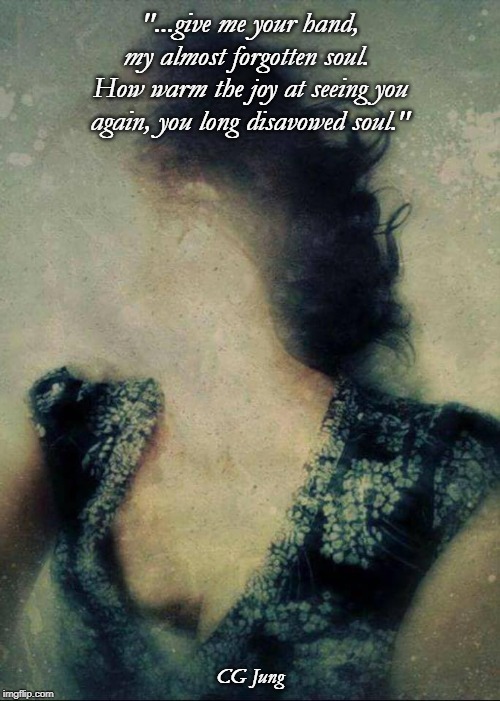
Carl Jung says it this way, “Until you make the unconscious conscious it will direct your life and you will call it fate.” Jill says it this way, “You can’t be responsible for yourself and how you walk in the world if you don’t know what makes you tick.” My guess is that we know this to be true but are so easily swayed to project an image, at least in America, that we don’t really realize when we are fooling ourselves.
I’m no shrink so I don’t know all the facets of making the unconscious conscious. I do believe from personal experience that awareness of our emotions is a key factor in the attempt. The psychologist John Powell explains, “Connecting to ourselves on a feeling level is for many of us, much easier said than done, but with practice, we can learn the language of emotions and become skilled at recognizing feelings when they arise, identifying them, experiencing them, and ultimately, honoring them through our communications and /or actions. This process not only generates intimacy, depth and genuineness in our relationships, but it also enables us to create the feeling of being complete and whole within ourselves.”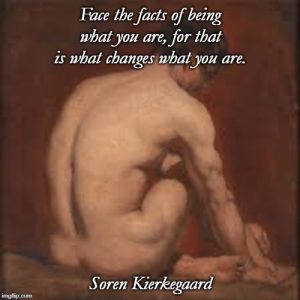
In some communities you will hear, “You can’t trust your emotions.” In others, “Don’t let your emotions rule you.” There is also the false notion that the Stoics were emotionless creatures, but some actually lived well because they integrated their emotional states into their ethical codes. As John Powell implied, the problems come from denying or repressing emotions. The difficult thing with denial or repression is that we don’t realize it’s happening when it is happening. The great Thomas Merton is serious about this as he says:
“What can we gain by sailing to the moon if we are not able to cross the abyss that separates us from ourselves? This is the most important of all voyages of discovery, and without it all the rest are not only useless but disastrous.”
I agree because I’ve been lost in the field of unawareness before and it makes life extremely flat and confusing. I believe that emotions are from the seat of our hearts and when we are out of touch with our own hearts we are unintentionally living inauthentic lives. Authentic is a bit of a buzz word but the antonym marks the meaning perfectly. Inauthentic means, “Not in fact, what it is said to be.” The quest for authenticity is impossible if we are out of touch with who we really are at a heart level.
The following are some of the consequences of living from an unconscious place, directly related to emotional states. I believe these all manifest in our intimate relationships as well as our communal ones.
When we feel insecure and don’t face it, we will demand that others make us feel secure. When we feel sad and don’t face it we will either demand others to make us happy, or extend the sadness indefinitely. If we feel ashamed and don’t face it, we will attack anyone who questions our actions. If we feel guilt and don’t face it, well, there are two ways to go here, because the feeling of guilt can be a false flag. Guilt is a truth to be faced in order to repent and grow. When it’s a feeling of guilt but not an actual truth, we can unnecessarily drown in self-loathing. When we feel angry, we will look for anything and anyone to blame it on. Therapeutically anger is noted as a second-tier emotion, meaning it stems from another deeper emotion like disappointment or pain. It takes a minute to untangle that one. Emotions are individual as well. Some people will worry more easily, or feel sad longer, or go up and down in moods more easily. Some things that could cause me to feel pain won’t have the same effect on someone else, even from my own family. It is a journey we must take alone. Expecting others to feel the same way we do in any given moment is another sign of unconscious living. I’m not saying it’s easy, and listen to this, “Most of us feel that others will not tolerate emotional honesty. We would rather defend our dishonesty on the grounds that it might hurt others; and having rationalized our phoniness into nobility, we settle for superficial relationships.” Mr. Powell pulls no punches here. But the reality is, if we can’t handle our own emotional honesty, there is no reason to expect others to be able to handle it.
I’m thinking of a Carlos Fuentes novel where he says, “No, it’s not that they’re bad. It’s that they’re obliged to pretend they’re good.” I’m out of context here but what a lovely way to think of the unconscious. The adult version of playing pretend, as my childhood friend used to say. But it’s not intentional, it’s a deep-seated feeling of obligation to seem good. Most parents know when we hear the first lies from our little’s lips, that they aren’t trying to be bad, they just want to be seen as good. Sure, they don’t want to get in trouble either, but that’s beside the point. Feeling obliged to pretend is a beautiful way of explaining a heart/mind disconnection. I don’t think anyone really wants to be like that, but putting childish things behind us is harder than it sounds.
The stoic I like, Marcus Aurelius, gives us a reason to discover our own hearts. “You must consider the activity which is possible for you to carry out in conformity with your own nature as a delight – and that is always possible for you.” I don’t believe he was talking about nature as a one size fits all humanity, but a living breathing individual who is capable of living in delight. Seems a great reason to look into it.
Part II specifically shows how to make some connections between the unconscious and conscious.

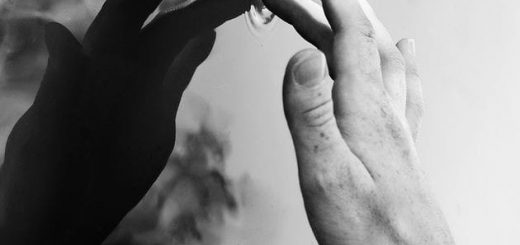
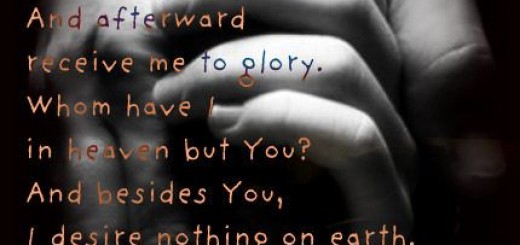
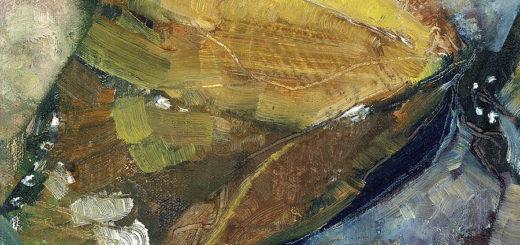
Discussion